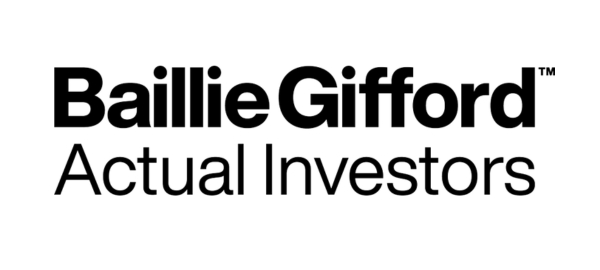Sponsor Content Created With Baillie Gifford
The age of resilience: Outperformers must first be survivors
Transformative companies must shockproof themselves against turbulent times, writes Tom Slater, investment manager for Scottish Mortgage.

Capital at risk.
The economist Frank Knight first made the distinction between risk and uncertainty. Risk, he argued, can be measured. But it is uncertainty that rules our world of trade wars, real wars and pandemics.
Professor Knight’s point was that entrepreneurs are rewarded for bearing the weight of the unknowable rather than taking calculated risks.
Having a competitive edge in investing comes from taking a different view of a company’s potential. We aim to see value before others, and that means getting comfortable with what can't be known. If a company faces predictable risks, the market will have already agreed on a value.
The trauma of 2022's rising interest-rate environment made Scottish Mortgage look again at whether the companies in its portfolio are resilient enough to adapt to whatever's thrown at them.
Our willingness to back “blue-sky” visions is unchanged. But we're more aware it's today's business, not tomorrow's potential, that must navigate the bumps in the road. However great the opportunity, if a company can't overcome those, it won't fulfil that potential.
Take Northvolt. We shared founder Peter Carlsson's vision of a European battery champion. Our mistake was not foreseeing its vulnerability to weaker demand and operational problems, leading to its bankruptcy in November 2024.
What resilience looks like in practice
Resilience is financial strength and cultural adaptability. Shopify exemplifies this. Previously running below break-even while investing in projects, it switched to keeping 20% of revenue after operating costs. That cushion provides flexibility while maintaining growth.
Meta took a similar approach with its “year of efficiency”, addressing weaker business areas and costs. And Cloudflare, previously loss-making, has steadily increased margins, helping it withstand shocks.
Companies need sufficient margins to withstand sales dips, generate cash and avoid excessive debt. But resilience extends beyond fi nancial metrics. It includes culture, too.
Companies that make their own weather
Ferrari shows how companies can “make their own weather”. Its brand power gives it levers to pull when demand dips.
Oddity thrives in a shrinking cosmetics sector by enhancing products with newly discovered molecules and using AI for personalised recommendations.
And Netflix demonstrates how innovation creates flexibility. It has pricing options and can vary the rate at which it commissions new content.
China's delivery giant Meituan exemplifies another kind of resilience. When rivals attacked its markets, analysts reduced ratings as growth and margins were hit. But fighting off competition proved the strength of its business model. Its recovery demonstrates how investors can outperform by recognising that resilience is worth more than others think. This emphasis doesn’t mean Scottish Mortgage is becoming timid. Far from it. We're still searching for great businesses with uncertain futures, but which have the potential to be wildly more successful than anybody else believes.
But companies that hurt our performance were those whose vulnerability prevented them from fulfilling their potential. When the next crisis comes, we want to hold fewer such companies.
Amid turbulence, focus on what you can predict
There's been no shortage of tough environments since I started investing in 2000. But you don't survive for a quarter of a century without a degree of detachment and, yes, resilience.
However you prepare, things come out of left field that you can do nothing about. Which is why it's not a career for everyone, especially when markets move in crazy ways. There's always something to worry about.
When backing companies that are doing new things, we need them to align with themes we're confident about. We know AI will be more capable in five years. Electric vehicle batteries will be cheaper with greater range. And cloud software will become more powerful.
Our job is refining understanding of long-run developments, knowing only the most resilient survive to thrive.
Important information
This article does not constitute, and is not subject to the protections afforded to, independent research. Baillie Gifford and its staff may have dealt in the investments concerned. The views expressed are not statements of fact and should not be considered as advice or a recommendation to buy, sell or hold a particular investment. Baillie Gifford & Co and Baillie Gifford & Co Limited are authorised and regulated by the Financial Conduct Authority (FCA). The investment trusts managed by Baillie Gifford & Co Limited are listed on the London Stock Exchange and are not authorised or regulated by the FCA. A Key Information Document is available at bailliegifford.com
Brought to you by

Get the latest financial news, insights and expert analysis from our award-winning MoneyWeek team, to help you understand what really matters when it comes to your finances.
-
 Should you buy an active ETF?
Should you buy an active ETF?ETFs are often mischaracterised as passive products, but they can be a convenient way to add active management to your portfolio
-
 Power up your pension before 5 April – easy ways to save before the tax year end
Power up your pension before 5 April – easy ways to save before the tax year endWith the end of the tax year looming, pension savers currently have a window to review and maximise what’s going into their retirement funds – we look at how